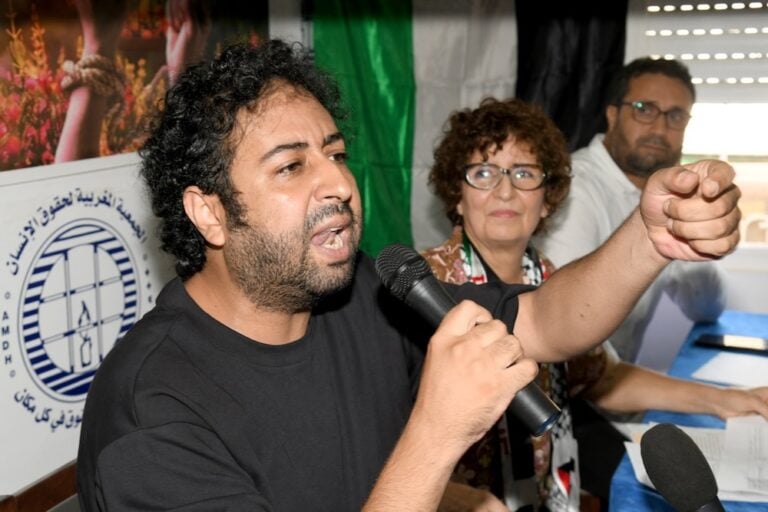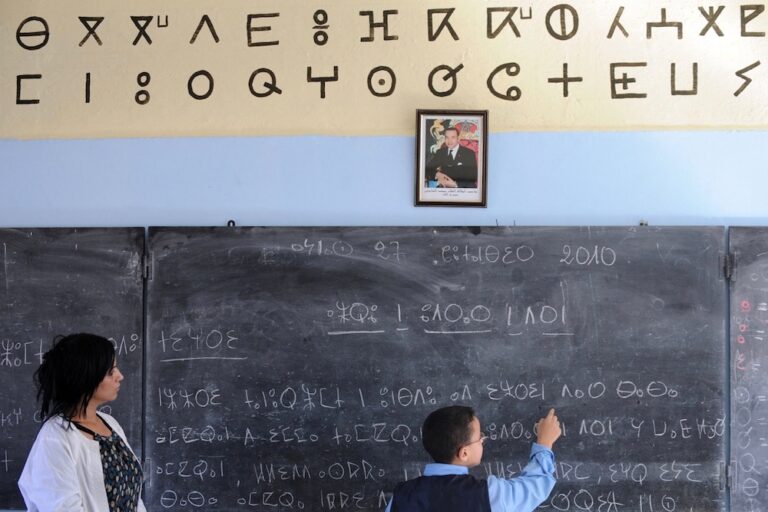In a letter to Communications Minister Mohammed Larbi Messari, RSF protested the dismissal of three directors of the second public television station, 2M. The three directors are Larbi Belarbi, Mustapha Mellouk and Mohammed Mamad. RSF asked the minister to “reverse his decision”. RSF Secretary-General Robert Ménard added: “We regret that the security reflexes have reappeared […]
In a letter to Communications Minister Mohammed Larbi Messari, RSF protested the dismissal of three directors of the second public television station, 2M. The three directors are Larbi Belarbi, Mustapha Mellouk and Mohammed Mamad. RSF asked the minister to “reverse his decision”. RSF Secretary-General Robert Ménard added: “We regret that the security reflexes have reappeared in the kingdom. Contrary to what we may have believed a few months ago, the authorities do not seem to be allowing greater openness in the area of press freedom. We do not believe that these dismissals, which follow a number of restrictions on and seizures of newspapers, point to an improvement in the country’s situation.” RSF recalled that “since the beginning of the year, seven newspapers, including two French publications, (‘Jeune Afrique – L’Intelligent’ and ‘Le Figaro’), have been issued circulation bans by the Moroccan authorities”.
According to the information collected by RSF, the dismissal of Belarbi, Mellouk and Mamad followed the broadcast of a review of the weekly press on 14 April 2000, in the course of which a journalist showed the cover story of the most recent issue of “Le Journal”, which dealt with the Sahara affair. The next day, the weekly “Le Journal” and its Arab-language version,
“Assahifa”, were banned under order of Prime Minister Abderrahmane Youssoufi. Youssoufi explained that this measure was aimed at
“reaffirming the (government’s) determination to deal firmly with any flippant treatment of the Moroccan people’s feelings.”
On 15 February, the weekly “Jeune Afrique – L’Intelligent” became the target of a circulation ban further to the publication of a text by Abdellah Labdaoui, a Moroccan intellectual residing in Québec, who called into question the monarch’s capacity to introduce genuine reforms. On 4 March, the French daily “Le Figaro” suffered the same fate because of its commentary on a book by François Cléret, King Hassan II’s former doctor, titled “The King’s Horse” (“Le cheval du roi”).


